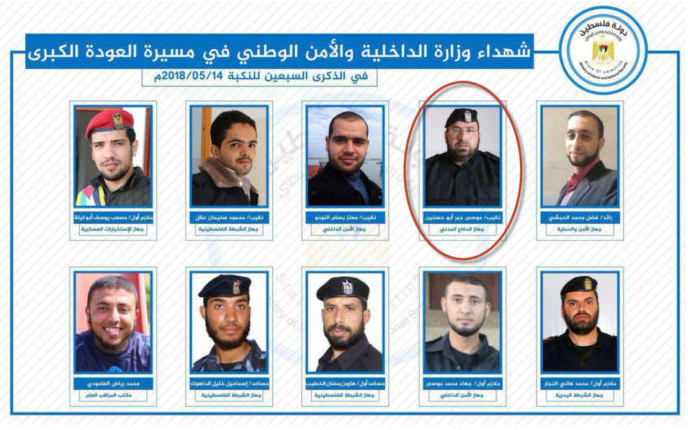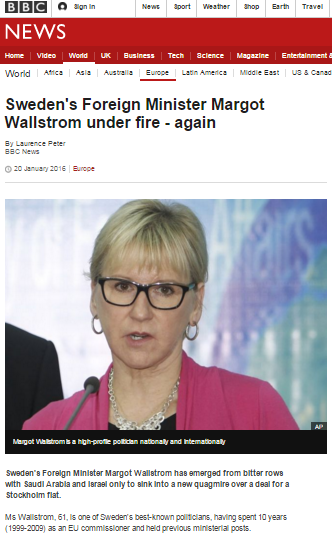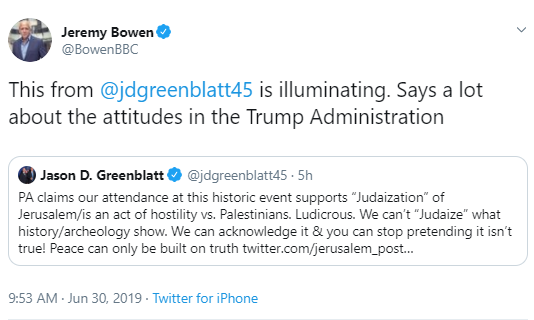Two months ago, on March 18th, BBC Radio 4’s ‘Today’ programme aired an item which included an interview presented by host Nick Robinson as follows:
Robinson: “The United Nations has said that over a year of weekly protests at the border with Gaza [sic] 193 Palestinians have been killed and more than 26 thousand injured. Among them is Dr Tarek Loubani, a Canadian Palestinian associate professor at the University of Western Ontario.”
Loubani: “I’d like to say that I was doing something heroic when I got shot but I wasn’t. I was standing. It was quiet, there was nothing else happening on the field. I was just loitering, talking to some of my colleagues. I was marked clearly in greens and had been on the field for a few hours so it was obvious to the soldiers, who were very close to us, exactly what we were doing. And I did not expect that I would be targeted. Up until that point it had been six weeks with no injuries of medics. All of a sudden I heard a loud bang and felt an incredible pain in my legs and found myself on the ground. The paramedic who rescued me, Musa Abuhassanin, Musa was killed an hour later when he was shot in the chest.”
As was noted here at the time, BBC audiences had previously heard that story from Tarek Loubani in an article that appeared on the BBC News website in May 2018 and which included a link to his blog.
“Dr Loubani, an emergency physician who practises in London, Ontario, and at the Shifa Hospital in Gaza, said in a blog post that one paramedic was killed and several others were wounded on Monday as Israeli troops opened fire during the protests.”
As was noted here on both those occasions:
“…a photograph of Captain Musa Abuhassanin also appeared on a poster released by Hamas showing some of its members killed on May 14th [2018].”
The ‘paramedic’ identified by Hamas in that poster as a member of its internal security apparatus turned up again in BBC Two’s recent film titled ‘One Day in Gaza’.
At 29:50 the film showed an interview with Musa Abuhassanin’s mother who told how, on May 14th 2018, she was taken by bus along with others from her local mosque to an “unofficial protest site” near the border which was “near a graveyard” and “right next to a Hamas military training area”.
31:18 “Four paramedics were dispatched to the area…one of them was Aintisar’s son, Musa. […] Musa was a paramedic in Gaza’s civil defence force – part of the Hamas ministry of the interior.”
Viewers heard an account of events at that site which contrasts sharply to that already given twice to BBC audiences by Tarek Loubani.
33:00: “Eyewitnesses say at least two armed Palestinians stood aside from the crowd and began firing on Israeli soldiers.”
A member of the IDF interviewed concerning the same incident spoke of fifteen to twenty shooters and viewers saw real time footage of shooting and IED explosions.
36:14: “Twenty-one people were killed at the graveyard that afternoon. At least eight of them were alleged [sic] members of al Qassam brigades, the military wing of Hamas. Two of them were children. No Israelis were hurt. The Hamas leadership denies they sanctioned a military operation that day but admits that Palestinians opened fire.”
55:02: “The paramedic Musa Abuhassanin was one of the dead claimed by Hamas. Palestinians say [sic] that like most of the dead, he had nothing to do with the organisation’s armed wing and was posing no threat to Israel when he was shot.”
According to the Twitter feed of the film’s producer Olly Lambert, he did his filming in the Gaza Strip in December 2018 at the same time that the ‘Today’ programme’s Mishal Husain was there.
Surely then the BBC should have realised by late December that the account of the incident it had promoted in May 2018 (and which is still available online) according to which the IDF opened fire without provocation was inaccurate and that the paramedic who appeared in Tarek Loubani’s story was actually a member of Hamas.
Nevertheless, three months after Lambert had filmed his interviews in the Gaza Strip, the BBC Radio 4 ‘Today’ programme once again provided an unchallenged platform for Tarek Loubani’s activist propaganda.
Related Articles:
BBC again amplifies Gaza claims from political activist medic
Former ISM activist medic reappears in BBC Radio 4 ‘Today’ show
BBC Two’s ‘One Day in Gaza’ adheres to existing BBC practice




